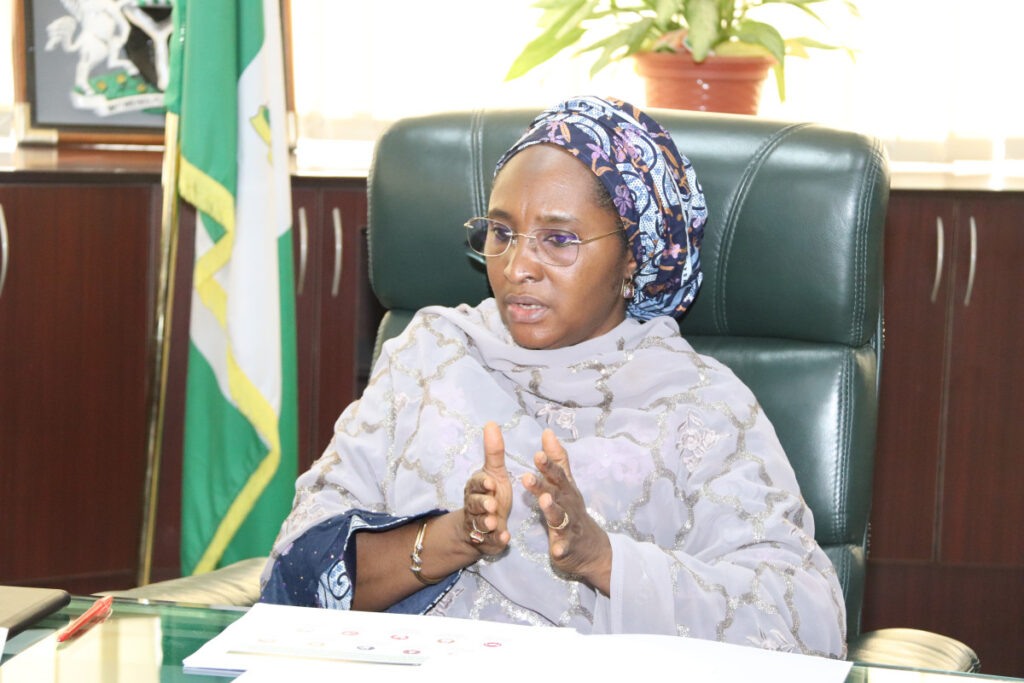Nigeria’s economy will recover to the path of growth early in 2021. So, the total aggregate revenue that is projected for the 2021 Budget is N7.89 trillion and what is unique about the 2021 Budget is that the budgets of 60 government-owned enterprises (GOEs) has been incorporated, according to Mrs. Zainab Ahmed, the Honourable Minister of Finance, Budget and National Planning.
Ahmed said this recently when she presented to the Federal Executive Council (FEC) the proposal for the 2021 Budget. Before presenting the proposal, she also presented the performance of the 2020 Budget up to July 2020, recalling that in 2020, the government only brought in budgets of 10 GOEs.
According to her: “These 60 GOEs exclude Nigerian National Petroleum Corporation (NNPC) and the Central Bank of Nigeria (CBN) and the reason being that NNPC is a national oil company. Internationally, national oil companies are not included in the national budget. Also, the CBN is an autonomous body. Only those two are excluded, 60 GOEs included. That is to say their revenue and all categories of expenditure are now integrated in the budget.
“We have a total aggregate revenue of N7.89 trillion and also an aggregate expenditure of N13.08 trillion for 2021. There is a fiscal deficit of N4.489 trillion. This represents 3.64 percent, slightly above what is required by the Fiscal Responsibility Act (FRA) of three percent and also to report that the total capital expenditure that is projected in the budget is 29 percent of the aggregate expenditure,” she stated.
Making some comparison, Ahmed said: “This is an improvement over the 24 percent that we had in the 2020 Budget, but slightly below the 30 percent that we targeted in the economic recovery. Just to clarify that the 1.86 million barrels per day (mbpd) crude oil production include 400,000 condensates. So, we have complied with the Organisation of the Petroleum Exporting Countries (OPEC) quota, which is placed at about 1.5 mbpd. So, the 1.46 mbpd is in meeting with the OPEC quota”.
“This is important to us because as you report, if you just report the 1.86, some members of the OPEC appear to think that we are exceeding OPEC quota, whereas we are reporting oil and condensate.
The Honourable Minister also stated that briefly, the performance of the government budget for revenue as at July was one hand 68 percent revenue performance prorated to July. The performance of expenditure, on the other hand, was 92.3 percent and that is to say salaries were fully paid, pensions were paid, debt service was made, as well as transfers classified as statutory.
In presenting the Budget 2020, “we had to report to the Council some slight changes that needed to be made on medium term expenditure framework (MTEF) 2021/2023, which has since July been sent to the National Assembly by President Muhammadu Buhari. Specifically, the exchange rate is going to be changed from N360 that we initially presented and submitted to the Council and to the National Assembly, up to N379. The reason why this is happening is due to the exchange rate movement that the CBN has put in place.
“Also, there were some slight changes on miscellaneous revenues and signature bonuses after interaction with Department of Petroleum Resources (DPR), which resulted in some increase in revenue.
“The total budget proposal that is made for 2021 is to enable us to attain a more inclusive growth and also to achieve the key objectives of government, which include stimulating the economy, creating jobs, enhancing growth and creating infrastructural investment, also promoting manufacturing and local production. The budget assumptions that were presented to the Council today include: Crude oil price benchmark at $40 per barrel; oil production at 1.86 mbpd; exchange rate of N379 to US$1; GDP growth target of 3 percent; and inflation rate of 11.95 percent.
On what specific influence does COVID-19 have on 2021 Budget, Mrs. Ahmed said: “The 2021 Budget has been able to make more provision for human capital development. So, the Ministry of Health, for example, has its provision almost doubled. The Ministry of Education has a significant increase. The details of the budget will be provided to the country after Mr. President submits the budget which we hope might be on the 8th of October. So, the details will be out. But, what is unique about this is that of the provision for human capital development, especially health is doubled.
Making reference to the ambitious growth rate, Mr. Clem Agba, Minister of State, Budget and National Planning, said: “You talked about the growth rate to be very ambitious; first, we have to use modern approach and this is done by National Bureau of Statistics (NBS). When you consider the economic sustainability plan which is also going to run for another six months next year, remember we have the N2.3 trillion stimulus. The economy too has also now been opened, the lock downs been lifted, economic activities have picked up and we have also selected some sectors in the economy that we are putting in a lot of money that will create activities and then the multiplier effect of it.
“In terms of funding, as the Honorable Minister mentioned, there is a deficit of financing of N4.486 trillion, and we also expect that oil prices will be much more stable. Recall that the revised 2020 budget was at $28 per barrel, but now, oil is averaging about $40 to $40 something, and we have used an exchange rate that is higher N379, benchmark of $40 per barrel, and then the production is also much better. So, we expect to have more revenues to fund the budget.
“There is also a lot of improvement in our revenue generation. Even though we have not gotten to where we want to be, we have seen steady increase in revenue from 2018 till today, and we expect that trajectory to continue as we implement the strategic revenue and growth initiative.
During a Question and Answer session, Mr. Ben Akabueze, Director-General (DG), Budget Office, said: “As the Honourable Minister stated earlier on, the overall budget implementation, expenditure wise as of July, was 92.3 percent. And she pointed out items like debt service, personnel cost performed 100 percent. Capital budget as of that day has reached 60 percent performance and that is what then brought down the overall average to 92 percent.
“As of now, every agency of government has received at least 50 percent of their 2020 capital budget released to them. And indeed, despite the challenges of this year, this might be one year we won’t record the highest level of capital budget performance for a while. It is also reflective of the switch to implementing January to December fiscal year, despite interruption of COVID-19.






